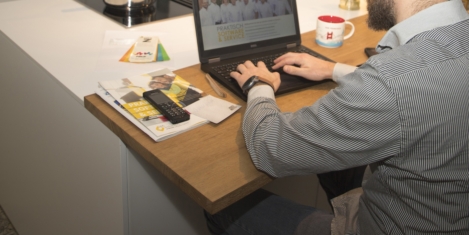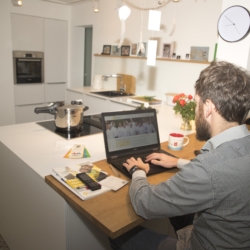To provide the best experiences, we use technologies like cookies to store and/or access device information. Consenting to these technologies will allow us to process data such as browsing behaviour or unique IDs on this site. Not consenting or withdrawing consent, may adversely affect certain features and functions.
The technical storage or access is strictly necessary for the legitimate purpose of enabling the use of a specific service explicitly requested by the subscriber or user, or for the sole purpose of carrying out the transmission of a communication over an electronic communications network.
The technical storage or access is necessary for the legitimate purpose of storing preferences that are not requested by the subscriber or user.
The technical storage or access that is used exclusively for statistical purposes.
The technical storage or access that is used exclusively for anonymous statistical purposes. Without a subpoena, voluntary compliance on the part of your Internet Service Provider, or additional records from a third party, information stored or retrieved for this purpose alone cannot usually be used to identify you.
The technical storage or access is required to create user profiles to send advertising, or to track the user on a website or across several websites for similar marketing purposes.
 Workers are feeling compelled to demonstrate presenteeism and availability to employers in the wake of the COVID-19 outbreak, claims a new global study from the ADP Research Institute. This is despite a rise in flexible working, with the percentage of organisations who have official flexible working policies nearly doubling compared to before the pandemic. (more…)
Workers are feeling compelled to demonstrate presenteeism and availability to employers in the wake of the COVID-19 outbreak, claims a new global study from the ADP Research Institute. This is despite a rise in flexible working, with the percentage of organisations who have official flexible working policies nearly doubling compared to before the pandemic. (more…)






 Millions of Brits give up more than a month of time each year by working additional unpaid hours, totalling five years overtime in their working life, according to new research by
Millions of Brits give up more than a month of time each year by working additional unpaid hours, totalling five years overtime in their working life, according to new research by 




 To mark the start of National Work Life Week, work-life balance charity
To mark the start of National Work Life Week, work-life balance charity 


 A new survey from
A new survey from 
 More than 11 million UK working adults have taken time off work for poor mental wellbeing, costing businesses an estimated 40 million working days each year, claims new research from healthcare provider,
More than 11 million UK working adults have taken time off work for poor mental wellbeing, costing businesses an estimated 40 million working days each year, claims new research from healthcare provider, 
 New research by the
New research by the 
 New research by
New research by 
 UK workers are most likely to log a claim against their employer for making them work excessively long hours, claims new data by health and safety training provider
UK workers are most likely to log a claim against their employer for making them work excessively long hours, claims new data by health and safety training provider 







September 21, 2020
Time to get on board with the psychological effects of working from home
by Jörg Bakschas • Comment, Flexible working, Wellbeing